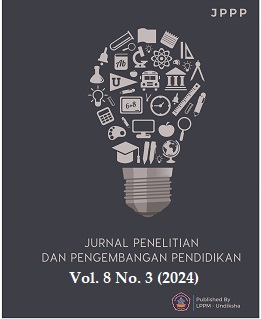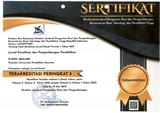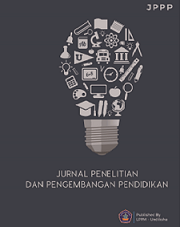Mystery Box Media Increases Motivation and Learning Achievement of Fourth Grade Students in Civics Learning
DOI:
https://doi.org/10.23887/jppp.v8i3.79420Keywords:
Mystery Box, Learning Motivation, Learning Achievment, Civic LearningAbstract
Lack of use of interesting, creative, and diverse learning resources in the classroom can reduce students' motivation to learn, resulting in low student achievement. Therefore, this research aims to analyze the use of mystery box media on student motivation and learning achievement in Civics class IV elementary school subjects. This type of research uses a quasi-experimental approach in experimental quantitative research. The design of this research is an unequal control group design. The sample for this research was 25 experimental class students and 19 control class students. The data collection techniques are tests, questionnaires, documentation, observation, and interviews. Validity and reliability tests are used in the testing instrument. The data analysis techniques used are t-test, N-Gain, homogeneity test, normality test, and descriptive analysis. The research results showed that the experimental class's average post-test learning achievement score was more significant than the average post-test score for the control class. The t-test value shows differences in student learning outcomes after using mystery box media in the Civics class IV elementary school subject. In addition, the experimental group showed a higher learning motivation level than the control group. It was concluded that the application of mystery box media was significantly practical for students' learning motivation and achievement in class IV civics education (PPKn) in elementary school.
References
Abbas, E. W., Jumriani, & Mutiani. (2021). Banua Anyar Culinary Tourism Area: Study of Economic Activities As A Learning Resource on Social Studies. IOP Conference Series: Earth and Environmental Science, 747(1). https://doi.org/10.1088/1755-1315/747/1/012019. DOI: https://doi.org/10.1088/1755-1315/747/1/012019
Aflahah, U., Azizah, M., & Suneki, S. (2023). Penerapan Model Pbl Berbantuan Media Kotak Misteri Untuk Meningkatkan Hasil Belajar Siswa Kelas II Di SDN Petompon 02. Pendas: Jurnal Ilmiah Pendidikan Dasar, 08(01), 5672–5681. https://doi.org/10.23969/jp.v8i1.8832. DOI: https://doi.org/10.23969/jp.v8i1.8832
Agustiana, I. G. A. T., Agustini, R., Ibrahim, M., & Tika, I. N. (2020). Perangkat Pembelajaran (RPS dan SAP) IPA Model (OPPEMEI) untuk Meningkatkan Keterampilan Berpikir Kreatif Mahasiswa PGSD. Jurnal Ilmiah Sekolah Dasar, 4(2), 309–323. https://doi.org/10.23887/jisd.v4i2.25190. DOI: https://doi.org/10.23887/jisd.v4i2.25190
Agustira, S., & Rahmi, R. (2022). Penggunaan Media Pembelajaran Untuk Meningkatkan Hasil Belajar Siswa Pada Tingkat SD. Mubtadi: Jurnal Pendidikan Ibtidaiyah, 4(1), 72–80. https://doi.org/10.19105/mubtadi.v4i1.6267. DOI: https://doi.org/10.19105/mubtadi.v4i1.6267
Aisah, R., Masfuah, S., & Rondli, W. (2022). Analisis Faktor Penyebab Kesulitan Belajar PPKn DI SD. Didaktik : Jurnal Ilmiah PGSD STKIP Subang, 8(1). https://doi.org/10.36989/didaktik.v8i1.339. DOI: https://doi.org/10.36989/didaktik.v8i1.339
Andini, S. R., Putri, V. M., Devi, M. Y., & Erita, Y. (2021). Mendesain Pembelajaran PKn dan IPS yang Inovatif dan Kreatif dengan Menggunakan Model Pembelajaran Pada Tingkat Sekolah Dasar. Jurnal Basicedu, 5(6), 5671–5681. https://doi.org/10.31004/basicedu.v5i6.1760. DOI: https://doi.org/10.31004/basicedu.v5i6.1760
Andriani, R., & Suratman, A. (2021). Media pembelajaran berbasis andrioid untuk meningkatkan motivasi dan hasil belajar siswa. Jurnal Analisa, 7(1), 56–65. https://doi.org/10.15575/ja.v7i1.10654. DOI: https://doi.org/10.15575/ja.v7i1.10654
Apgrianto, K., Sujana, I. M., Syahrial, E., Saputra, A., & Khotimah, K. (2021). Deploying 4C of 21st Century Learning Based on Authentic Materials for Advanced Grammar Classes. Proceedings of the 2nd Annual Conference on Education and Social Science (ACCESS 2020), 556. https://doi.org/10.2991/assehr.k.210525.094. DOI: https://doi.org/10.2991/assehr.k.210525.094
Aprita, N., & Kurniah, N. (2021). Pengembangan Media Busy Book Untuk Meningkatkan Kemampuan Membaca Awal Dan Perkembangan Kognitif Anak Usia Dini (Studi Pada Anak Kelompok A PAUD Kota Bengkulu). Diadik: Jurnal Ilmiah Teknologi Pendidikan, 11(1), 50–63. https://doi.org/10.33369/diadik.v11i1.18368. DOI: https://doi.org/10.33369/diadik.v11i1.18368
Ariska, K., & Suyadi, S. (2020). Penggunaan Metode Show And Tell Melalui Media Magic Box Untuk Meningkatkan Kemampuan Bahasa Dalam Pendidikan Anak Usia Dini. Seling: Jurnal Program Studi PGRA, 6(2), 102–114. https://doi.org/10.29062/seling.v6i2.626.
Ayu Tantri, D., Agung Gede Agung, A., & Wayan Ilia Yuda Sukmana, A. I. (2023). Media Video Pembelajaran pada Mata Pelajaran Bahasa Indonesia Kelas V. Mimbar PGSD Undiksha, 11(1), 100–109. https://doi.org/10.23887/jjpgsd.v11i1.57719. DOI: https://doi.org/10.23887/jjpgsd.v11i1.57719
Balqis, K., Purnomo, M. E., & Oktarina, S. (2021). Learning Media for Writing Fantasy Story Text Based on Scientific Plus Using Adobe Flash. Jurnal Ilmiah Sekolah Dasar, 5(3), 387. https://doi.org/10.23887/jisd.v5i3.35635. DOI: https://doi.org/10.23887/jisd.v5i3.35635
Cahyani, N. L. aParamita, & Jayanta, I. N. L. (2021). Digital Literacy-Based Learning Video on the Topic of Natural Resources and Technology for Grade IV Elementary School. Jurnal Ilmiah Sekolah Dasar, 5(3), 538. https://doi.org/10.23887/jisd.v5i3.37918. DOI: https://doi.org/10.23887/jisd.v5i3.37918
Candra Dewi, N. M. L., & Negara, I. G. A. O. (2021). Pengembangan Media Video Animasi IPA pada Pokok Bahasan Sistem Pernapasan Kelas V. Jurnal Edutech Undiksha, 9(1), 122–130. https://doi.org/10.23887/jeu.v9i1.32501. DOI: https://doi.org/10.23887/jeu.v9i1.32501
Datu, A. R., Tumurang, H. J., & Sumilat, J. M. (2022). Pengaruh Motivasi Belajar Terhadap Hasil Belajar Siswa di Tengah Pandemi Covid-19. Jurnal Basicedu, 6(2), 1959–1965. https://doi.org/10.31004/basicedu.v6i2.2285. DOI: https://doi.org/10.31004/basicedu.v6i2.2285
Fathoni, A., Surjono, H. D., Mustadi, A., & Kurniawati, W. (2021). Peran Multimedia Interaktif Bagi Keberhasilan Pembelajaran Sistem Peredaran Darah. Jurnal Kependidikan: Penelitian Inovasi Pembelajaran, 5(2), 147–157. https://doi.org/10.21831/jk.v5i2.33931. DOI: https://doi.org/10.21831/jk.v5i2.33931
Fauziah, M. P., & Ninawati, M. (2022). Pengembangan Media Audio Visual (Video) Animasi Berbasis Doratoon Materi Hak dan Kewajiban Penggunaan Sumber Energi Mata Pelajaran PPKn di Sekolah Dasar. Jurnal Basicedu, 6(4), 6505–6513. https://doi.org/10.31004/basicedu.v6i4.3257. DOI: https://doi.org/10.31004/basicedu.v6i4.3257
Fitrianti, I. (2020). Keefektifan Media Magic Box Terhadap Hasil Belajar Matematika Materi Jaring-Jaring Bangun Ruang Sederhana. MIMBAR PGSD Undiksha, 8(2), 323–329.
Gever, V. C., Tunca, E. A., Boluwatife, A. A., Nwogbo, V. C., & Chinweobo-Onuoha, B. N. (2021). Visual media and learning: Effect of interactive television instruction as an intervention strategy for improving the critical thinking skills and disposition of out-of-school nomadic children in Nigeria. Learning and Motivation, 76. https://doi.org/10.1016/j.lmot.2021.101767. DOI: https://doi.org/10.1016/j.lmot.2021.101767
Hae, Y., Tantu, Y. R. P., & Widiastuti, W. (2021). Penerapan Media Pembelajaran Visual Dalam Membangun Motivasi Belajar Siswa Sekolah Dasar. Edukatif : Jurnal Ilmu Pendidikan, 3(4), 1177–1184. https://doi.org/10.31004/edukatif.v3i4.522. DOI: https://doi.org/10.31004/edukatif.v3i4.522
Handayani, T. (2021). Pengembangan Media Komik Digital Berbasis STEM untuk Meningkatkan Literasi Sains Siswa Sekolah Dasar. Jurnal Didaktika Pendidikan Dasar, 5(3), 737–756. https://doi.org/10.26811/didaktika.v5i3.343. DOI: https://doi.org/10.26811/didaktika.v5i3.343
Hapsari, G. P. P., & Zulherman. (2021). Pengembangan Media Video Animasi Berbasis Aplikasi Canva untuk Meningkatkan Motivasi dan Prestasi Belajar Siswa. Jurnal Basicedu, 5(4), 2384–2394. https://doi.org/10.31004/basicedu.v5i4.1237. DOI: https://doi.org/10.31004/basicedu.v5i4.1237
Harahap, N., & Rusli, M. (2021). Online learning media in higher education in the new normal era. Language Literacy: Journal of Linguistics, Literature, and Language Teaching, 5(2). https://doi.org/10.30743/ll.v5i2.3879. DOI: https://doi.org/10.30743/ll.v5i2.3879
Khodijah, S. S., & Setiawan, W. (2020). Analisis Minat Belajar Matematika Siswa Smp Kelas Ix Pada Materi Grafik Fungsi Kuadrat Berbantuan Software Geogebra. Journal of Honai Math, 3(1), 27–40. https://doi.org/10.30862/jhm.v3i1.112. DOI: https://doi.org/10.30862/jhm.v3i1.112
Kirani, A. P., & Najicha, F. U. (2022). Pentingnya Pendidikan Kewarganegaraan sebagai Pedoman dalam Menghadapi Era Society 5.0 Mendatang. Jurnal Educatio FKIP UNMA, 8(2), 767–773. https://doi.org/10.31949/educatio.v8i2.2391. DOI: https://doi.org/10.31949/educatio.v8i2.2391
Kurniawati, A., Pardjono, P., Mutohhari, F., Nurhaji, S., & Purnomo, S. (2022). Improving Self Efficacy and Learning Motivation Through Hybrid Learning Based Google Classroom. Jurnal Pendidikan Indonesia, 11(3), 510–521. https://doi.org/10.23887/jpiundiksha.v11i3.39289. DOI: https://doi.org/10.23887/jpiundiksha.v11i3.39289
Mawaddah, A., Abbas, E. W., & History, A. (2022). Extracurricular Activities PMR (Red Cross Teen) at Banua South Kalimantan Bilingual Boarding High School Makes Students with Character. The Kalimantan Social Studies Journal, 3(2), 2716–2346. https://doi.org/10.20527/kss. DOI: https://doi.org/10.20527/kss.v3i2.4976
Mawardi, E., Vitasari, M., & Berlian, L. (2022). Validity of infographic learning media theme of green growth in training critical thinking skills. Jurnal Pena Sains, 9(1), 29–37. https://doi.org/10.21107/jps.v9i1.13721. DOI: https://doi.org/10.21107/jps.v9i1.13721
Meilyana, H., E., & Tanzimah. (2022). Pengaruh Media Mystery Box terhadap Hasil Belajar IPS Siswa Kelas V SD Negeri 195 Palembang. Journal on Teacher Education, 4(1), 25–32. https://doi.org/10.31004/jote.v4i1.5651.
Mufatikhah, N., Rondli, W. S., & Santoso. (2023). Strategi Guru Dalam Motivasi Belajar PPKn Siswa SD. Jurnal Educatio FKIP UNMA, 9(2), 465–471. https://doi.org/10.31949/educatio.v9i2.4667. DOI: https://doi.org/10.31949/educatio.v9i2.4667
Mulyani, H., Komalasari, K., Permatasari, M., Bribin, M. L., & Suriaman, S. (2024). Transformasi Pendidikan Kewarganegaraan Global di Era Abad 21: Analisis Implementasi dan Tantangan. Jurnal Kewarganegaraan, 21(1), 88. https://doi.org/10.24114/jk.v21i1.55115. DOI: https://doi.org/10.24114/jk.v21i1.55115
Naila Muna, K., & Wardhana, S. (2022). Pengembangan Media Pembelajaran Video Animasi dengan Model ADDIE pada Pembelajaran Bahasa Indonesia Materi Perkenalan Diri dan Keluarga untuk Kelas 1 SD. EduStream: Jurnal Pendidikan Dasar, 5(2), 175–183. https://doi.org/10.26740/eds.v5n2.p175-183. DOI: https://doi.org/10.26740/eds.v5n2.p175-183
Ningsi, N., & Salwiah, S. (2018). Meningkatkan Kemampuan Visual-Spasial Melalui Kegiatan Tebak Gambar Menggunakan Media Flip Chart. Jurnal Riset Golden Age PAUD UHO, 1(3). https://doi.org/10.36709/jrga.v1i3.9109. DOI: https://doi.org/10.36709/jrga.v1i3.9109
Ningsih, S. ., & Pritandhari, M. (2019). Pengembangan Media Pembelajaran Ludo pada Mata Pelajaran Ekonomi Kelas IX SMA Purnama Trimurjo. Promosi: Jurnal Prodi Pendidikan Ekonomi, 7(1), 50–59. https://doi.org/10.24127/pro.v7i1.2039. DOI: https://doi.org/10.24127/pro.v7i1.2039
Nopita Sari, D., & Lian, B. (2023). Pengaruh Media Pembelajaran Magic Box (Kotak Ajaib) Terhadap Hasil Belajar Matematika Siswa Kelas II Sekolah Dasar. Innovative: Journal of Social Science Research, 3(2), 9120–9127. https://doi.org/10.31004/innovative.v3i2.1483.
Nurfadhillah, S., Nurfalah, K., Amanda, M., Kauniyah, N., Anggraeni, R. W., & Tangerang, U. M. (2021). Penerapan Media Visual Untuk Siswa Kelas V Di Sdn Muncul 1. EDISI : Jurnal Edukasi dan Sains, 3(2), 227.
Parawangsa, E., Dewi, D. A., & Furnamasari, Y. F. (2021). Hakikat Pendidikan Kewarganegaraan di Sekolah Dasar (SD). Jurnal Pendidikan Tambusai, 5(3), 8050–8054. https://doi.org/10.31004/jptam.v5i3.2297.
Patriansah, M., Halim, B., & Putra, M. E. P. (2021). Meningkatkan Kreativitas Siswa Melalui Kegiatan Lomba Gambar Bercerita Di Sd 226 Palembang. Selaparang Jurnal Pengabdian Masyarakat Berkemajuan, 4(2), 188. https://doi.org/10.31764/jpmb.v4i2.4299. DOI: https://doi.org/10.31764/jpmb.v4i2.4299
Pramita Dewi, R., Gde Margunayasa, I., & Made Suarjana, I. (2021). Belajar Bahasa Indonesia Dengan Model Pembelajaran Snowball Throwing Berbantuan Media Audio Visual. Mimbar PGSD Undiksha, 9(3), 424–431. https://doi.org/10.23887/jjpgsd.v9i3.40090. DOI: https://doi.org/10.23887/jjpgsd.v9i3.40090
Prawati, R. E., & Ramadan, Z. H. (2021). The PJBL Model on Increasing the Pancasila Student Profile (P3) of Grade IV Elementary School Students. MIMBAR PGSD Undiksha, 11(2), 335–343. https://doi.org/10.23887/jjpgsd.v11i2.64395. DOI: https://doi.org/10.23887/jjpgsd.v11i2.64395
Pujilestari, Y., & Susila, A. (2020). Pemanfaatan Media Visual dalam Pembelajaran Pendidikan Pancasila dan Kewarganegaraan. Jurnal Ilmiah Mimbar Demokrasi, 19(02), 40–47. https://doi.org/10.21009/jimd.v19i02.14334. DOI: https://doi.org/10.21009/jimd.v19i02.14334
Putera, R. F., Habibi, M., Chandra, & Zuryanty. (2024). Pengembangan Bahan Ajar Pendidikan Kewarganegaraan Berbasis Pendidikan Abad 21 untuk Siswa Sekolah Dasar. Didaktika: Jurnal Kependidikan, 13(1), 727–734. https://doi.org/10.58230/27454312.507.
Putriningsih, N. K., & Putra, M. (2021). Media Pop-Up Book Berorientasi Pendekatan Saintifik pada Muatan Pelajaran PPKn Kelas V Sekolah Dasar. Jurnal Edutech Undiksha, 9(1), 131–139. https://doi.org/10.23887/jeu.v9i1.32686. DOI: https://doi.org/10.23887/jeu.v9i1.32686
Rahmatia, R., Pajarianto, H., Kadir, A., Ulpi, W., & Yusuf, M. (2021). Pengembangan Model Bermain Konstruktif dengan Media Balok untuk Meningkatkan Visual-Spasial Anak. Jurnal Obsesi : Jurnal Pendidikan Anak Usia Dini, 6(1). https://doi.org/10.31004/obsesi.v6i1.1185. DOI: https://doi.org/10.31004/obsesi.v6i1.1185
Rahmawati, N. M. D., & Margunayasa, I. G. (2022). Materi Ajar Digital Berbasis Kearifan Lokal Pada Topik Sumber Energi Panas Untuk Kelas V Sekolah Dasar. Mimbar Ilmu, 27(2), 234–243. https://doi.org/10.23887/mi.v27i2.47296. DOI: https://doi.org/10.23887/mi.v27i2.47296
Rahmawati, R., Nugraha, M., & Suci Pratiwi, A. (2020). Model Pembelajaran Kooperatif Tipe Make A Match Terhadap Prestasi Belajar Siswa kelas IV. Mimbar PGSD Undiksha, 8(2), 315–323. https://doi.org/10.23887/jjpgsd.v8i2.26675.
Rambe, R., & Riska, P. (2023). Crossword Puzzle Learning Media to Improve Indonesian Vocabulary Mastery. Jurnal Ilmiah Sekolah Dasar, 7(2021), 50–55. https://doi.org/10.23887/jisd.v7i4.61292. DOI: https://doi.org/10.23887/jisd.v7i4.61292
Retnaningsih, L. E., & Khairiyah, U. (2022). Kurikulum Merdeka pada Pendidikan Anak Usia Dini. Selling: Jurnal Program Studi PGA, 8(2). https://doi.org/10.29062/seling.v8i2.1223.
Rusmiati, N. M. (2022). Upaya Meningkatkan Prestasi Belajar PPKn Siswa Kelas VI Melalui Metode Diskusi Kelompok Kecil. Jurnal Penelitian Dan Pengembangan Pendidikan, 6(1), 36–42. https://doi.org/10.23887/jppp.v6i1.45486. DOI: https://doi.org/10.23887/jppp.v6i1.45486
Sari, R. K., Mudjiran, M., Fitria, Y., & Irsyad, I. (2021). Meningkatkan Motivasi dan Hasil Belajar Siswa dalam Pembelajaran Tematik Berbantuan Permainan Edukatif di Sekolah Dasar. Jurnal Basicedu, 5(6), 5593–5600. https://doi.org/10.31004/basicedu.v5i6.1735. DOI: https://doi.org/10.31004/basicedu.v5i6.1735
Septikasari, R., & Frasandy, R. N. (2018). Keterampilan 4C Abad 21 dalam Pembelajaran Pendidikan Dasar. Tarbiyah Al-Awlad. https://doi.org/10.15548/alawlad.v8i2.1597.
Sihombing, S., Silalahi, H. R., Sitinjak, J. R., & Tambunan, H. (2021). Analisis Minat Dan Motivasi Belajar, Pemahaman Konsep Dan Kreativitas Siswa Terhadap Hasil Belajar Selama Pembelajaran Dalam Jaringan. Jurnal Pendidikan Matematika : Judika Education, 4(1), 41–55. https://doi.org/10.31539/judika.v4i1.2061. DOI: https://doi.org/10.31539/judika.v4i1.2061
Sumayana, Y., Akbar, A., & Marlina, D. (2021). Penggunaan Media Pop Up Book Untuk Meningkatkan Motivasi dan Hasil Belajar Siswa Dalam Pembelajaran IPS Materi Karakteristik Geografis Indonesia. Jurnal Educatio, 7(4), 2076–2081. https://doi.org/10.31949/educatio.v7i4.1504.
Syariful Anam, & Elya Umi Hanik. (2020). Problematika Kebijakkan Pendidikan di Tengah Pandemi dan Dampaknya Terhadap Proses Pembelajaran di Sekolah Dasar. Jurnal Qiroah, 10(2), 73–81. https://doi.org/10.33511/qiroah.v10n2.73-81. DOI: https://doi.org/10.33511/qiroah.v10n2.73-81
Vadia Asti Riandini, P., Gde Wawan Sudatha, I., & Putu Parmiti, D. (2020). Korelasi antara Kecerdasan Emosional dan Motivasi Belajar dengan Hasil Belajar PPKn. Mimbar PGSD Undiksha, 8(3), 468–478. https://doi.org/10.23887/jjpgsd.v8i3.26072.
Wahyuningrum, A. K., & Dwiyanti, L. (2022). Pengembangan Media Pembelajaran Edukatif Mystery Box Untuk Perkembangan Anak Dalam Mengenal Huruf. Prosiding SEMDIKJAR (Seminar Nasional Pendidikan dan Pembelajaran), 5.
Wahyuningtyas, R., & Sulasmono, B. S. (2020). Pentingnya Media Pembelajaran dalam Meningkatkan Hasil Belajar di Sekolah Dasar. Jurnal Ilmiah Pendidikan, 2(1), 73–80. https://doi.org/10.52217/lentera.v16i1.1081. DOI: https://doi.org/10.31004/edukatif.v2i1.77
Waruwu, A. B. C., & Sitinjak, D. (2022). Penggunaan Multimedia Interaktif dalam Meningkatkan Minat Belajar Siswa pada Pembelajaran Kimia. Jurnal Pendidikan Mipa, 12(2), 298–305. https://doi.org/10.37630/jpm.v12i2.589. DOI: https://doi.org/10.37630/jpm.v12i2.589
Wasito, A., Al ma’ruf, A. I., Fuadi, D., Rahmawati, L. E., & Fauziati, E. (2022). Utilization of Visual Media in Thematic Learning in Elementary Schools. Jurnal Ilmiah Sekolah Dasar, 6(4), 584–591. https://doi.org/10.23887/jisd.v6i4.53744. DOI: https://doi.org/10.23887/jisd.v6i4.53744
Wulandari, A. P., Salsabila, A. A., Cahyani, K., Nurazizah, T. S., & Ulfiah, Z. (2023). Pentingnya Media Pembelajaran dalam Proses Belajar Mengajar. Journal on Education, 5(2), 3928–3936. https://doi.org/10.31004/joe.v5i2.1074. DOI: https://doi.org/10.31004/joe.v5i2.1074
Yu, Z., Gao, M., & Wang, L. (2020). The Effect of Educational Games on Learning Outcomes, Student Motivation, Engagement and Satisfaction. Journal of Educational Computing Research, 59(3), 522–546. https://doi.org/10.1177/0735633120969214. DOI: https://doi.org/10.1177/0735633120969214
Yuliani, F., Herman, & Tarmizi, P. (2020). Pengaruh Model Discovery Learning Berbantuan Media Pop-Up Book terhadap Hasil Belajar Tematik Siswa Kelas IV SD Gugus X Kota Bengkulu. Jurnal Riset Pendidikan Dasar, 3(1), 1–8. https://doi.org/10.33369/juridikdas.3.1.1-8.
Zakaria, P., Nurwan, N., & Silalahi, F. D. (2021). Deskripsi Kemampuan Berpikir Kritis Siswa Melalui Pembelajaran Daring Pada Materi Segi Empat. Euler : Jurnal Ilmiah Matematika, Sains dan Teknologi, 9(1), 32–39. https://doi.org/10.34312/euler.v9i1.10539. DOI: https://doi.org/10.34312/euler.v9i1.10539
Zulfikar, M. F., & Dewi, D. A. (2021). Pentingnya Pendidikan Kewarganegaraan Untuk Membangun Karakter Bangsa. JURNAL PEKAN : Jurnal Pendidikan Kewarganegaraan, 6(1), 104–115. https://doi.org/10.31932/jpk.v6i1.1171. DOI: https://doi.org/10.31932/jpk.v6i1.1171
Zulhemi, Adlim, & Mahidin. (2017). Pengaruh Media Pembelajaran Interaktif Terhadap Peningkatkan Keterampilan Berpikir Kritis Siswa. Jurnal Pendidikan Sains Indonesia (Indonesian Journal of Science Education), 5(1), 72–80.
Downloads
Published
How to Cite
Issue
Section
License
Copyright (c) 2024 Faadiyah Nuhaa, Yuli Witanto

This work is licensed under a Creative Commons Attribution-ShareAlike 4.0 International License.
Authors who publish with the Jurnal Penelitian dan Pengembangan Pendidikan agree to the following terms:
- Authors retain copyright and grant the journal the right of first publication with the work simultaneously licensed under a Creative Commons Attribution License (CC BY-SA 4.0) that allows others to share the work with an acknowledgment of the work's authorship and initial publication in this journal.
- Authors are able to enter into separate, additional contractual arrangements for the non-exclusive distribution of the journal's published version of the work (e.g., post it to an institutional repository or publish it in a book), with an acknowledgment of its initial publication in this journal.
- Authors are permitted and encouraged to post their work online (e.g., in institutional repositories or on their website) prior to and during the submission process, as it can lead to productive exchanges, as well as earlier and greater citation of published work. (See The Effect of Open Access)








